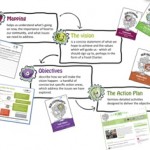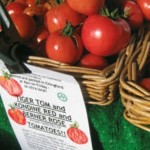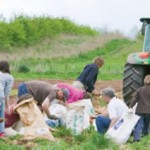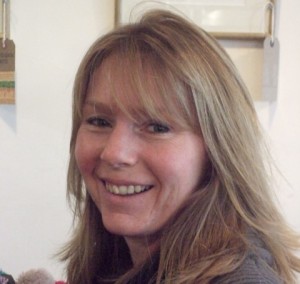 SUSTAINABLE FOOD SYSTEMS PLANNING and POLICY
SUSTAINABLE FOOD SYSTEMS PLANNING and POLICY
f3 works with public sector organisations including government agencies, local authorities, city councils and strategic partnerships, to develop local food system policies, strategies and action plans.
A lot of our current work is focusing on how to create a resilient city food system. For example our Food Plan Toolkit is being piloted in 3 locations to guide the process of developing a food strategy.
Services include:
- City/regional food supply systems analysis and strategies
- Facilitation of Food Strategy and Food Charter development
- Policy development for government and local authorities
- Facilitating ‘local food discussions
- SME input to academic and international research studies
Who Feeds Bristol, and Who Feeds Donostia
 Joy Carey led this innovative project, to explore whether Bristol’s food system is healthy and robust. For this reason, following on from Bristol’s ‘Peak Oil’ report, the Bristol Green Capital Momentum Group identified the need to gather baseline information about the producers and businesses that put food onto our plates. The research was commissioned and supported by NHS Bristol and Bristol City Council.
Joy Carey led this innovative project, to explore whether Bristol’s food system is healthy and robust. For this reason, following on from Bristol’s ‘Peak Oil’ report, the Bristol Green Capital Momentum Group identified the need to gather baseline information about the producers and businesses that put food onto our plates. The research was commissioned and supported by NHS Bristol and Bristol City Council.
The 130 page report contains a wealth of facts, figures and case studies relating to production, processing, distribution, catering, retail, community food growing, and waste. It includes an assessment of strengths, vulnerabilities and threats, and suggestions for action.
In 2015, a similar study was carried out for Donostia in northern Spain, helping to identify how this area, whose economy and tourism offer is hinged around food, can continue to prosper.
See summary report
Our Foodplan Toolkit
 Our Food Plan Toolkit is a set of resources that help project managers to build partnership activity
Our Food Plan Toolkit is a set of resources that help project managers to build partnership activity
when developing a city or regional food plan, charter or food strategy.
The toolkit contains:
- An introduction to the process and identifying key stakeholders
- Event guides for public and committee meetings
- Prompt cards for use in public meetings
- Posters and diagrams of the process
- Survey questionnaires and report templates
- A pre-formatted, interactive website – available by arrangement
Supurb Food - EU peri-urban agriculture research
 Supurbfood is an EU partnership project, reviewing sustainable models of urban and peri-urban food provisioning.
Supurbfood is an EU partnership project, reviewing sustainable models of urban and peri-urban food provisioning.
The overall goal of this project is to improve the sustainability of agriculture and food delivery in city-regions in Europe as well as in the global South by developing together with SMEs innovative approaches to:
– water, nutrient and waste management and recycling
– short food supply chain delivery
– multifunctional land use in city regions
The project has also conducted a systematic evaluation of the agri-food dynamics and governance context in the seven case study city regions, with a focus on those three key themes. In doing so, it provides a critical assessment of policies at the EU-level related to food, rural development, multifunctional agriculture and sustainable land use.
f3’s role was to help develop and pilot tools to analyse the benefits of short supply chains.
Food from the Urban Fringe: Issues and Opportunities
 f3 led this research study under the Making Local Food Work programme.
f3 led this research study under the Making Local Food Work programme.
This report focuses attention on the urban fringe: to understand its value as a food-producing zone, to unpack the challenges faced by those producing around cities and towns, and to be inspired by a range of enterprises that are providing food to town and city dwellers from their doorstep.
Seven urban fringe businesses involved in primary food production, and one urban food retail enterprise, were selected for close scrutiny, representing diverse scales, business models and products. In each case the history of their development was tracked, business issues and future plans explored, and key lessons abstracted.
See report

